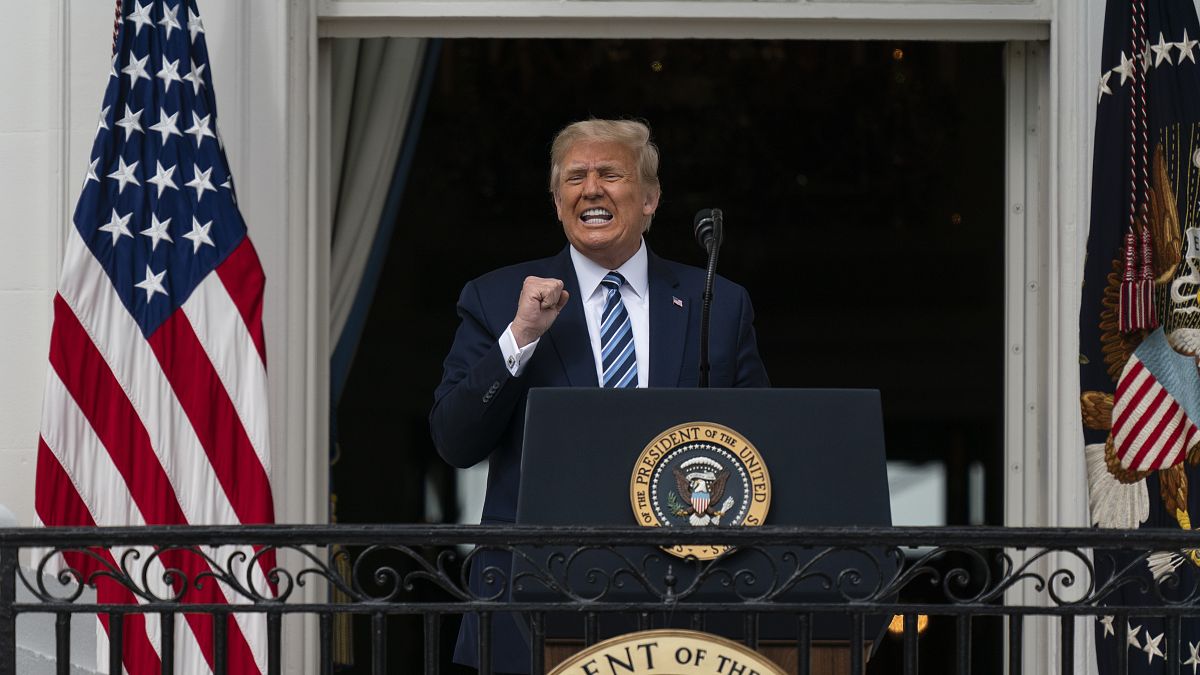The White House doctor has said the president is not considered a transmission risk, without declaring that he had tested negative for the virus.
Donald Trump on Sunday declared he was healthy enough to return to the campaign trail, claiming to widespread scepticism that he was now "immune" from the coronavirus.
It came a day after the White House doctor said the US president was no longer at risk of transmitting the coronavirus, but did not say explicitly whether Trump had tested negative for it.
“I’m immune," Trump said in an interview on Fox News. “The president is in very good shape to fight the battles."
The claim is impossible to prove and comes amid a series of outstanding questions about the president's health.
In a memo released Saturday night by the White House, Navy Cmdr. Dr. Sean Conley said Trump met the Centers for Disease Control and Prevention (CDC) criteria for safely discontinuing isolation and that by “currently recognized standards” he was no longer considered a transmission risk. The memo did not declare Trump had tested negative for the virus.
But sensitive lab tests — like the PCR test cited in the doctor’s statements — detect virus in swab samples taken from the nose and throat. Some medical experts had been sceptical that Trump could be declared free of the risk of transmitting the virus so early in the course of his illness.
Dr. Albert Ko, an infectious disease specialist and department chairman at the Yale School of Public Health, said that the White House appeared to be following CDC guidelines for when it is appropriate to end isolation after mild to moderate cases of COVID-19.
But Ko cautioned that those who have had severe cases of the diseases should isolate for 20 days. He noted that Trump was treated with the steroid dexamethasone, which is normally reserved for patients with severe COVID-19.
Ko added that White House had issued “convoluted” statements about Trump’s health that left many questions unanswered, including whether the president ever had pneumonia.
The White House memo followed Trump’s first public appearance since returning to the White House after being treated for the coronavirus at a military hospital. Hundreds of people gathered Saturday afternoon on the South Lawn for a Trump address on his support for law enforcement from a White House balcony.
Many supporters wore masks but did not observe social distancing as they crammed together on the grass. The president took his mask off before beginning his speech.
Officials organized the event just steps from the Rose Garden, where exactly two weeks ago the president held another large gathering to formally announce his nomination of Judge Amy Coney Barrett to the Supreme Court. That gathering is now being eyed as a possible COVID-19 superspreader as more than two dozen people in attendance have contracted the virus.
Trump's return to full-fledged rallies will be in Florida on Monday, a comeback that comes with the president facing stubborn deficits in the polls. He will follow the Florida rally with trips to Pennsylvania and Iowa on subsequent days.
The Trump campaign and White House has not indicated that any additional safety measures will be taken to prevent the transmission of the virus among those traveling on Air Force One or at the rally site.
While reports of reinfection in COVID-19 victims are rare, the CDC recommends that even people who recover from the disease continue to wear masks, stay distanced and follow other precautions. It was unclear if Trump, who has refused mask wearing in most settings, would abide by that guidance.
Democrat Joe Biden's campaign said the nominee again tested negative on Saturday for COVID-19. Biden was potentially exposed to the coronavirus during his Sept. 29 debate with Trump, who announced his positive diagnosis barely 48 hours after the debate.
